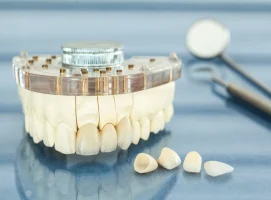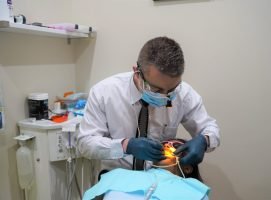What Exactly Is A Root Canal Procedure, And Why Do We Need It?
A root canal is a dental restorative procedure involving the removal of a tooth’s soft center, the pulp. The pulp consists of connective tissue, nerves, and blood vessels that help the growth of the teeth. In most cases, an endodontist or walk in dentist Houston will perform a root canal procedure while you’re under the effect of local anesthesia.
Root canal Houston Dentists need to perform root canal treatment when the soft inner part of a tooth, known as tooth pulp, becomes infected, inflamed, or injured.
According to the best dentists in Houston, The following are typical reasons for pulp damage:
- A hollow that is untreated and has profound deterioration
- In the same tooth, many dental treatments
- A fracture or chip in the tooth
- A tooth injury (you could hurt your tooth if you get smacked in the mouth; even if the tooth doesn’t fracture, it could still harm the pulp)
How do dental experts perform root canal treatment procedures?
Root canal Houston tx dentists perform root canal procedures in a dental office. When you come for your appointment, a technician will accompany you to the treatment area, assist you in sitting down, and drape a bib over your neck to shield your clothing from spills.
Anesthesia
They will numb your gums with a small amount of anesthetic placed by the urban dental Houston dentist close to the troubled tooth. They will inject a local anesthetic drug into your gums when it has had time to take effect. An extreme pinching or burning sensation is possible but will pass soon.
Removing the pulp
The orthodontist Houston tx or general dentist will make a tiny opening in the top of your tooth once it is completely numb. The specialist will carefully clean or remove the infected or damaged pulp files once exposed. They will be extra careful in thoroughly cleaning all the passageways (canals).
Antibiotics
The dentist or endodontist may apply a topical antibiotic to the infected area after removing the pulp to ensure the infection is gone and prevent reinfection. The dentist will use gutta-percha, a sealer paste that resembles rubber, to fill and seal the tooth after cleaning or sterilizing the canals. They might also advise oral antibiotics for you.
Filling temporarily
They will use a soft, temporary substance to seal the tiny space in the crown of the tooth by the dentist. Saliva injury to the canals is less likely because of this sealant.
Aftercare and recovery after your root canal
When the anesthetic wears off, your teeth and gums could feel sore and also possibly are swollen gums. Most dentists advise you to take over-the-counter painkillers like ibuprofen to address these symptoms. Contact your dentist if the discomfort persists for more than a few days or becomes severe.
You ought to be able to return to your regular schedule. Until the damaged tooth is permanently filled or has a crown on top, refrain from chewing. You’ll visit your dentist within a few days of the root canal to ensure that any infection has been treated and X-rays taken. They’ll also put a permanent filling in place of the temporary.
Conclusion
We hope the above-given information may help you understand some valuable and interesting facts regarding root canal treatment. For further informative details regarding root canals, please check out urbndental.com.














